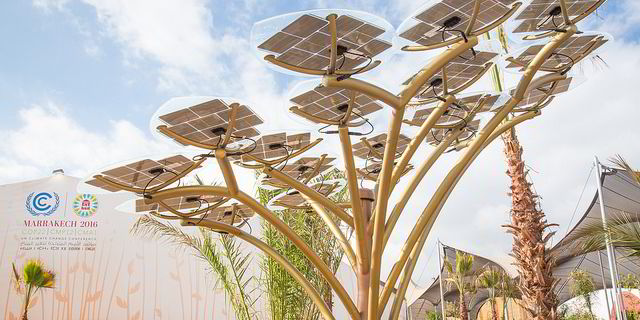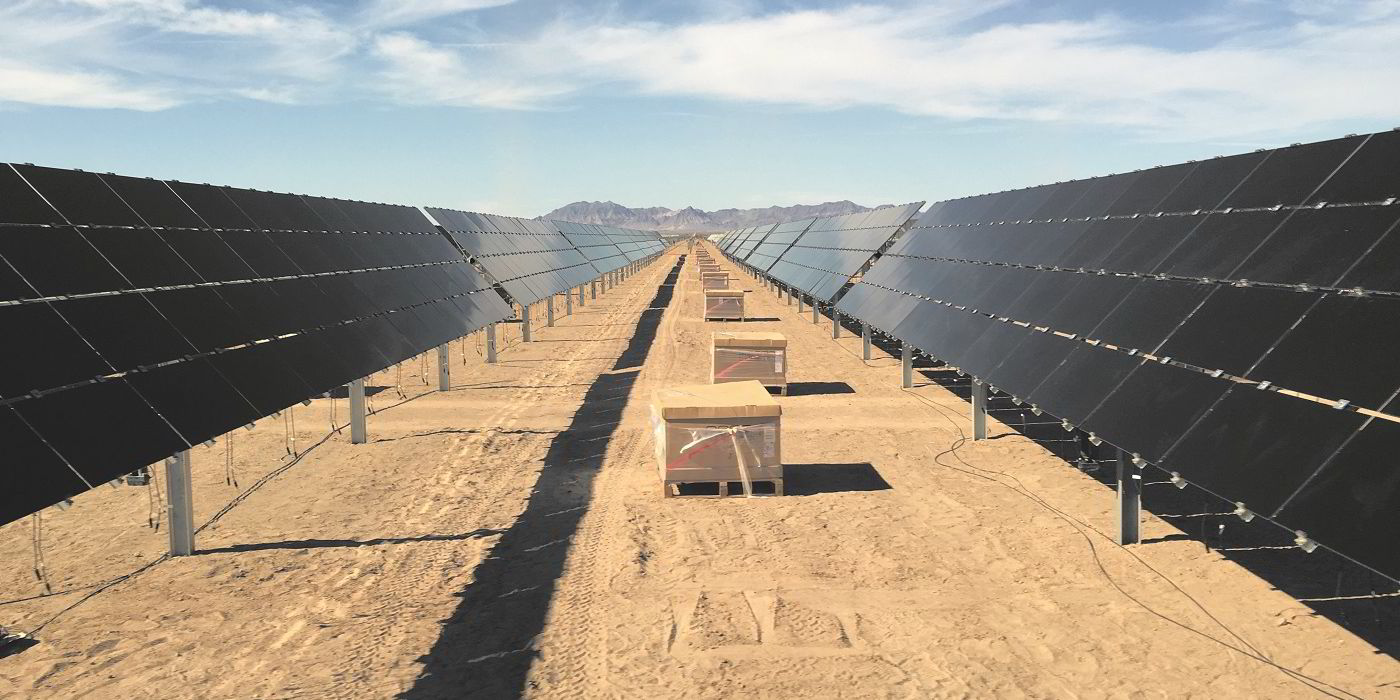The unexpected election of Donald Trump is undoubtedly a setback for the international climate talks and the renewables industries.
The shock dominated the first week of COP22, the first annual meeting of the nations party to the Paris Agreement, in Marrakech.
But by week end the message was clear. The rest of the world will march on towards emissions cuts and clean energy. Trump’s administration risks isolation if it presses ahead with plans to walk away from Paris commitments and renewables, and go all out for fossil fuels.
The nations that joined with Obama’s US to drive the Paris climate treaty through in December last year, the so-called High Ambition Group, issued a clear statement. “The Paris Agreement marks a turning point toward a more prosperous and stable world”, it said.
“Acting on climate change is in all of our national interests – it is good for our environment, good for our economies, and good for our climate security. Our commitment to be climate leaders remains steadfast."
EU commissioner Miguel Arias Canete joined with ministers from Mexico, Germany, Norway, Sweden and a group of the world’s poorest nations in relaying this.
China was equally clear at a press conference. “Our policy is that our actions will not be impacted by a new US government. We would continue to be an active player,” said Gu Zihua of the Ministry of Foreign Affairs.
Global carbon cutting efforts would continue whatever Trump’s stance on the UN deal, said Chen Zhihua, a representative with the National Development and Reform Commission, China’s main economic agency.
Saudi Arabia took its side. “History shows that climate action is global in nature. Universal participation will enhance its ambition”, said one of its delegation.
The world has been here before with its strongest superpower and the less than half of its voting population that errs to the right. Newly elected President George W. Bush walked away for an earlier climate agreement, the Kyoto Protocol, in 2001.
What did the rest of the world do? Met in Marrakech, at the seventh annual climate summit (COP7) and decided to go ahead with the treaty minus the US. That historic multilateral decision was essentially the kick-off point for global renewables growth since.
China, India, and Germany will be particularly key players now. We will see what China and India have to say next week, when ministers arrive in Marrakech.
But the Germans have already made it known they intend to unveil an ambitious plan for 2050. This will up the German target to emissions cuts of between 80 and 95%, a goal that entails a phase out for their coal sector. It will include 2030 sector targets for the power, buildings, industry, transport and agriculture sectors. They intend a strong leadership signal for politicians, and investors.
Trump has pledged to revive the US coal industry. He will struggle even to keep today’s depressed production flat, as Bloombergpointed out this week. Coal industry leaders themselves agreed with this: gas is simply too cheap, and renewables are rapidly heading the same way.
Coal workers were key to his election in swing states. They are heading for disappointment. And if Trump is not aware that American solar and wind workers outnumber coal, oil and gas workers combined, with more than 100,000 even in oil’s Texas heartland, he will soon find out.
Jeremy Leggett is founding director of international PV company Solarcentury.
Visit www.jeremyleggett.net for free download of The Winning of the Carbon War, his account of the dramas in energy and climate from 2013 to last year’s Paris summit. Also available for order as a printed book, with all proceeds going to SolarAid.



